When you have been doing this as long as I (somehow) have been doing this, it is natural to wind up with some sayings and “-isms” that help explain your “why” and core beliefs. Here is one of mine: “We should treat our teachers at least as well as we do our students”. There are lots of ways that can apply, but here I want to take a peek behind the curtain and share how we think about the critical work of growing our teachers. There are three OJCS North Stars that we aspire to for our students that apply at least as well to our teachers: 1) We own our learning, 2) We learn better together, and 3) There is a floor, but no ceiling.
Just as we want our students to take responsibility for their own learning as they develop in school, we empower our teachers to take ownership of their professional growth. The administration are not detectives looking to catch our teachers making mistakes, but partners in helping teachers become their best selves. Just as we know that learning is not done best alone, we encourage our teachers to grow themselves in cohorts, in community and in partnerships. And just as no two students are the same, we do not offer our teachers cookie-cutter PD; rather, we work with our teachers to co-create differentiated and personalized growth opportunities that meet them where they are and take them the next steps forward. [This does not mean that the administration never proscribes or requires particular growth experiences if that is what is called for; but we do try to start with the teacher’s passions and preferences.]
If you look up you will see our school’s Learning Target, which I have blogged about in the past. A quick reminder that,
This “Learning Target” is the instrument of alignment – meaning we can now make big and small decisions based on whether they bring our school closer to the target or not. If our “North Stars” represent unchanging aspirational endpoints of our educational journey, our “Learning Target” functions as a map and a compass.
Our teachers measure themselves – and we measure them – against a detailed rubric that describes varying degrees of excellence across these five domains and seventeen sub-domains. Each year we expect our teachers to demonstrate growth in (at least) one category. That season starts now. I am currently meeting with each teacher in our school to decide on a Professional Growth Project (PGP) that is intended to formally move that growth forward. Once I meet with each teacher and determine their PGP, they are shared with the full administration so we can build a calendar of professional growth opportunities aligned with this year’s needs.
If you are an OJCS Parent and not interested in more detail, feel free to skip the next section…

Because this blog does attract a broader audience than current families at OJCS (sorry if that reads like a bit of a humblebrag), I am going to tack on a few more technical pieces of the hows and whats of what we call our Annual Performance Review Process or APReP…
For transparency sake, here is the same graphic we provide our teachers as an overview:
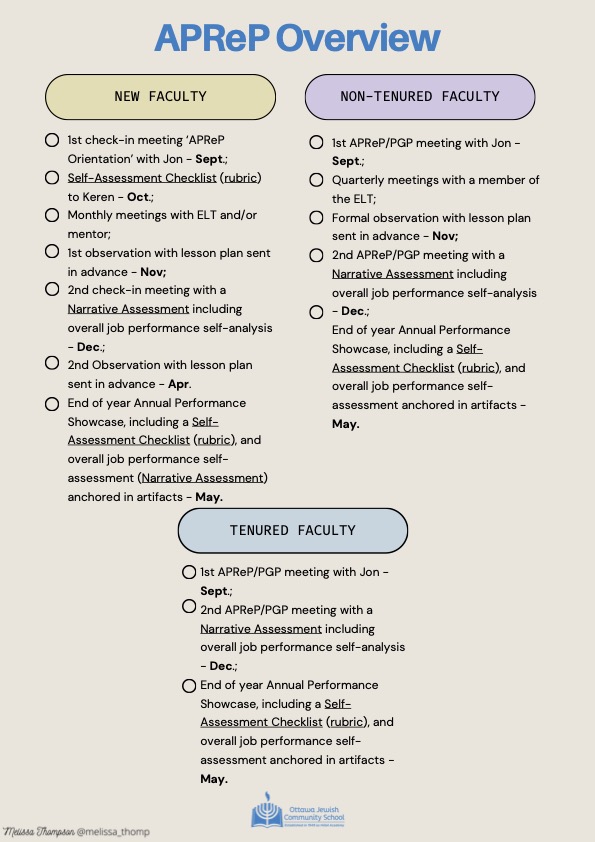
Things to know…
…anyone in the field who would like samples of all the documents that are (not) hyperlinked in the above JPEG, just put your email address in a comment or email me directly ([email protected]) and it will be my pleasure.
…this has been an iterative process over the years. We have added features, taken away features, etc. We currently distinguish between first-year teachers at OJCS, non-tenured teachers at OJCS, and tenured teachers at OJCS. [For my non-union friends, at our school, teachers become tenured if they are asked back for their fourth consecutive year of service.]
…”ELT” is our Educational Leadership Team.
…first-year teachers do not have a PGP as it is enough to acclimate yourself to a new school.
…new this year, veteran teachers may volunteer to sit on committees in lieu of PGPs upon request and agreeance from the administration.
…the APReP process is how we determine who our teachers are each year and which portfolios they are given. It is not intended to be a high-pressure or high-stakes process, but it does lead to meaningful outcomes. It is rigourous and it is serious.

Our teachers are our most important variable in school success. The more skilled, able, prepared and motivated our teachers…the greater the odds for all the outcomes we aspire towards. We are looking forward to great year of learning at OJCS this year…not just for our students, but for our teachers as well!


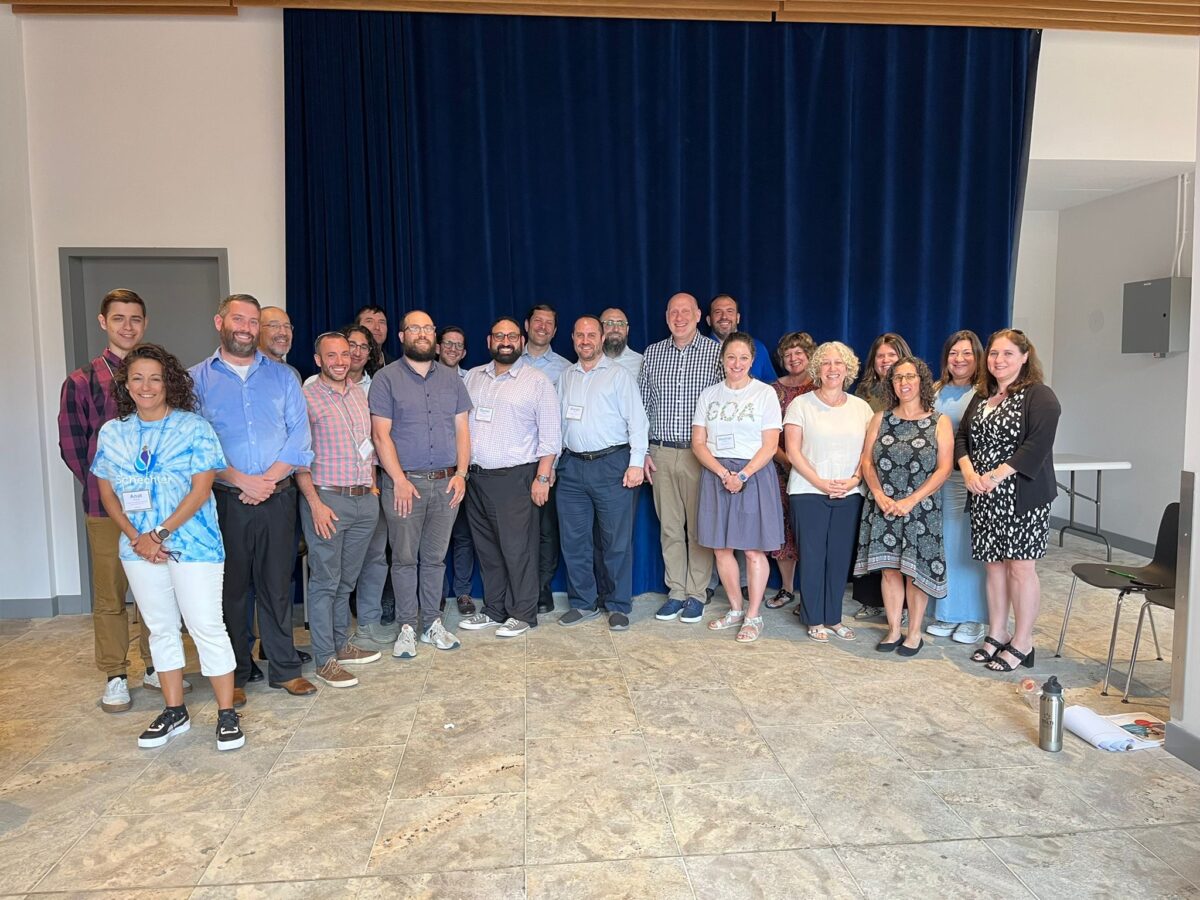

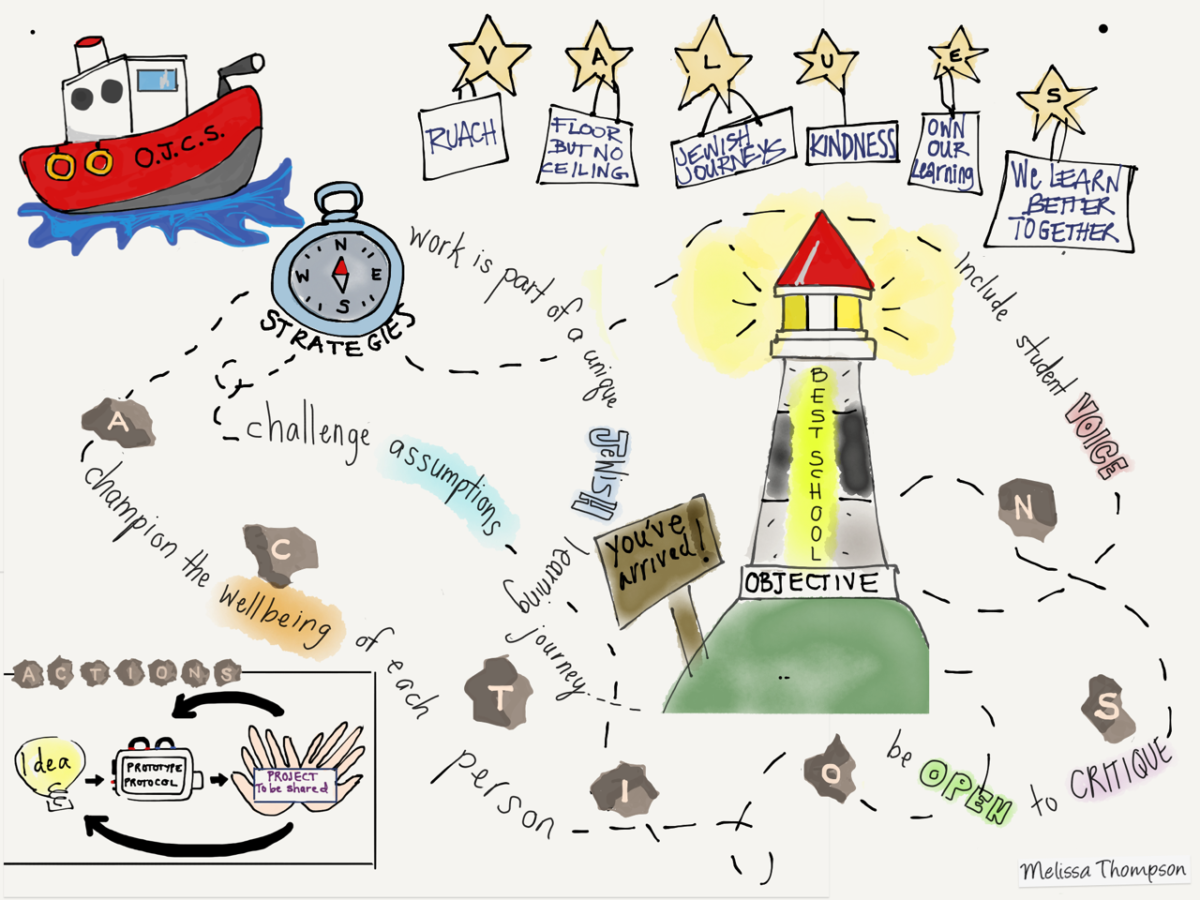
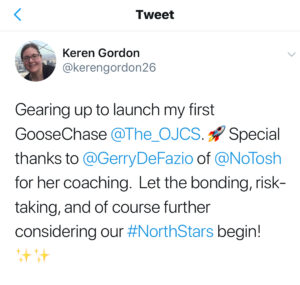 Vice Principal, Keren Gordon:
Vice Principal, Keren Gordon: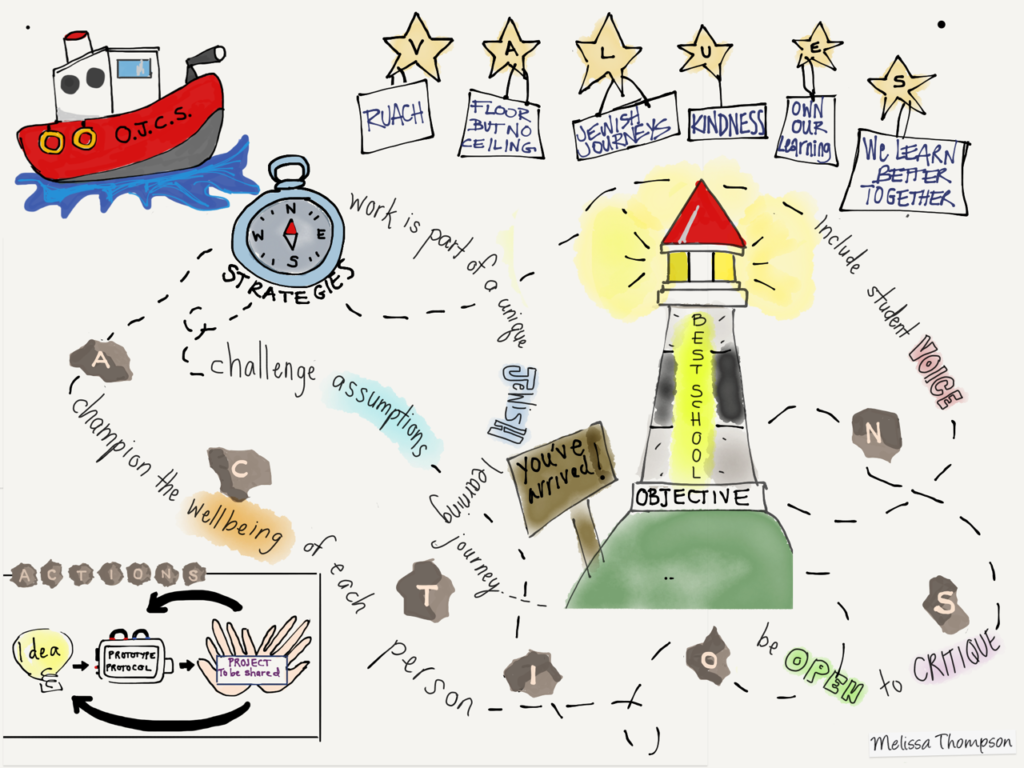
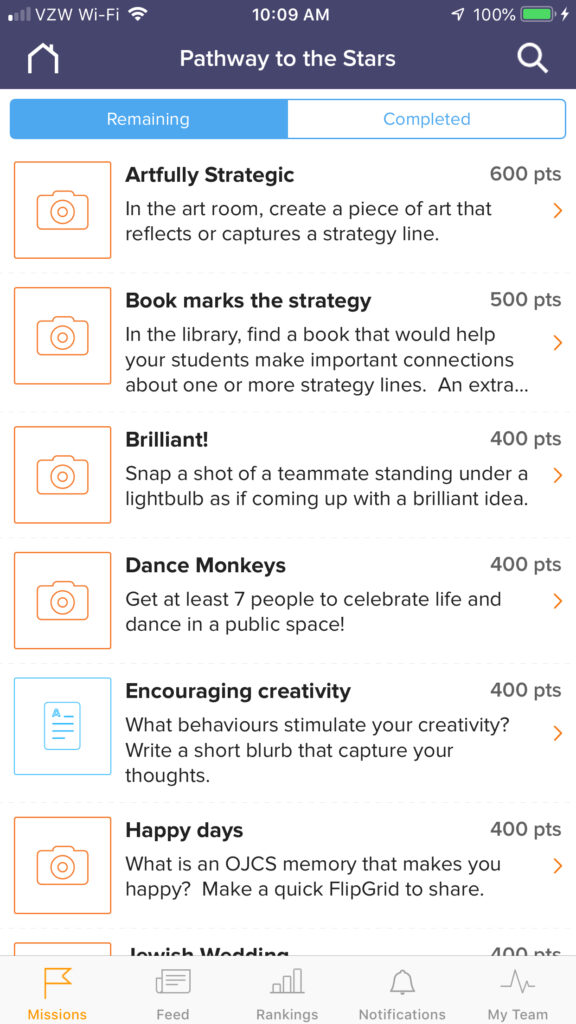
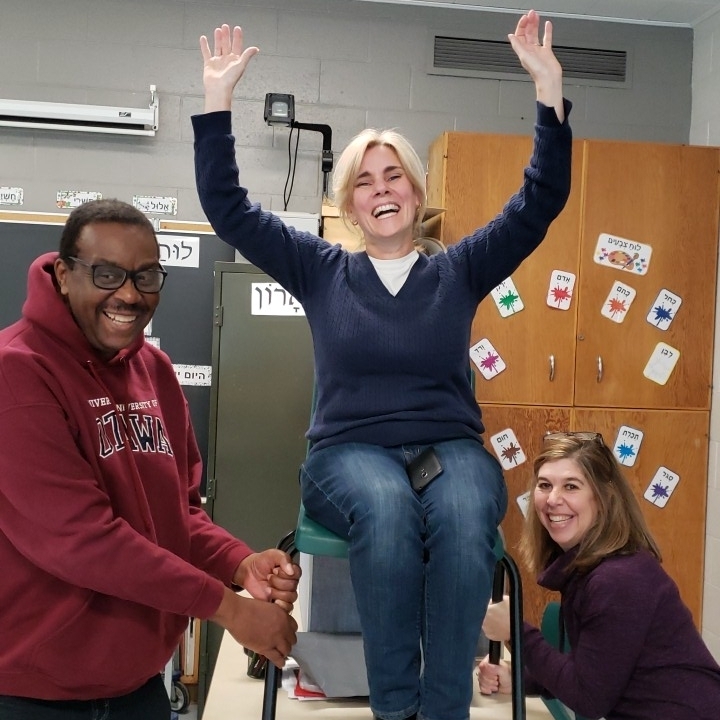
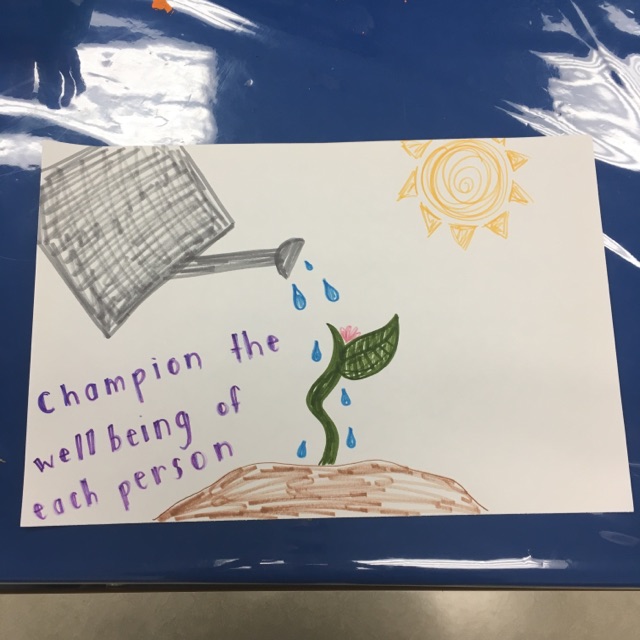
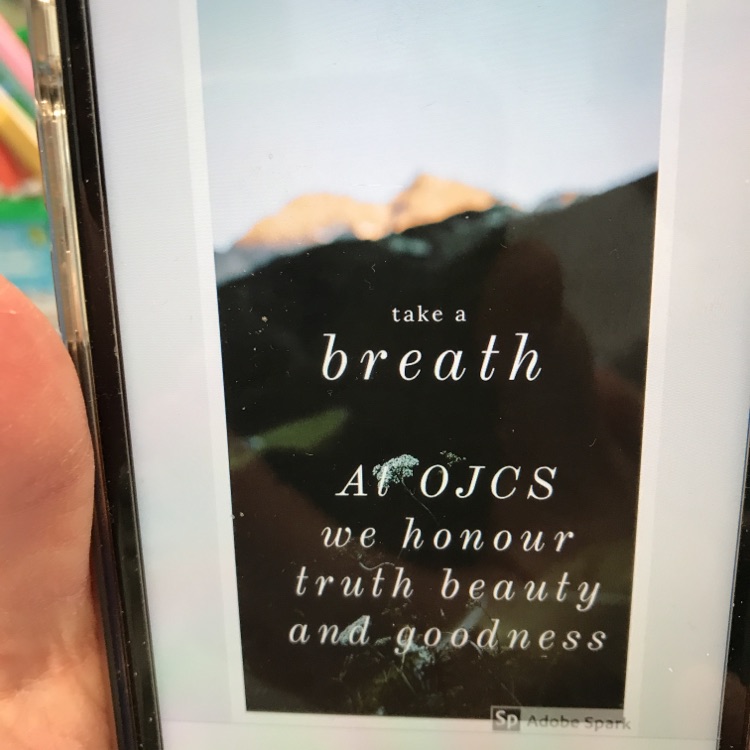
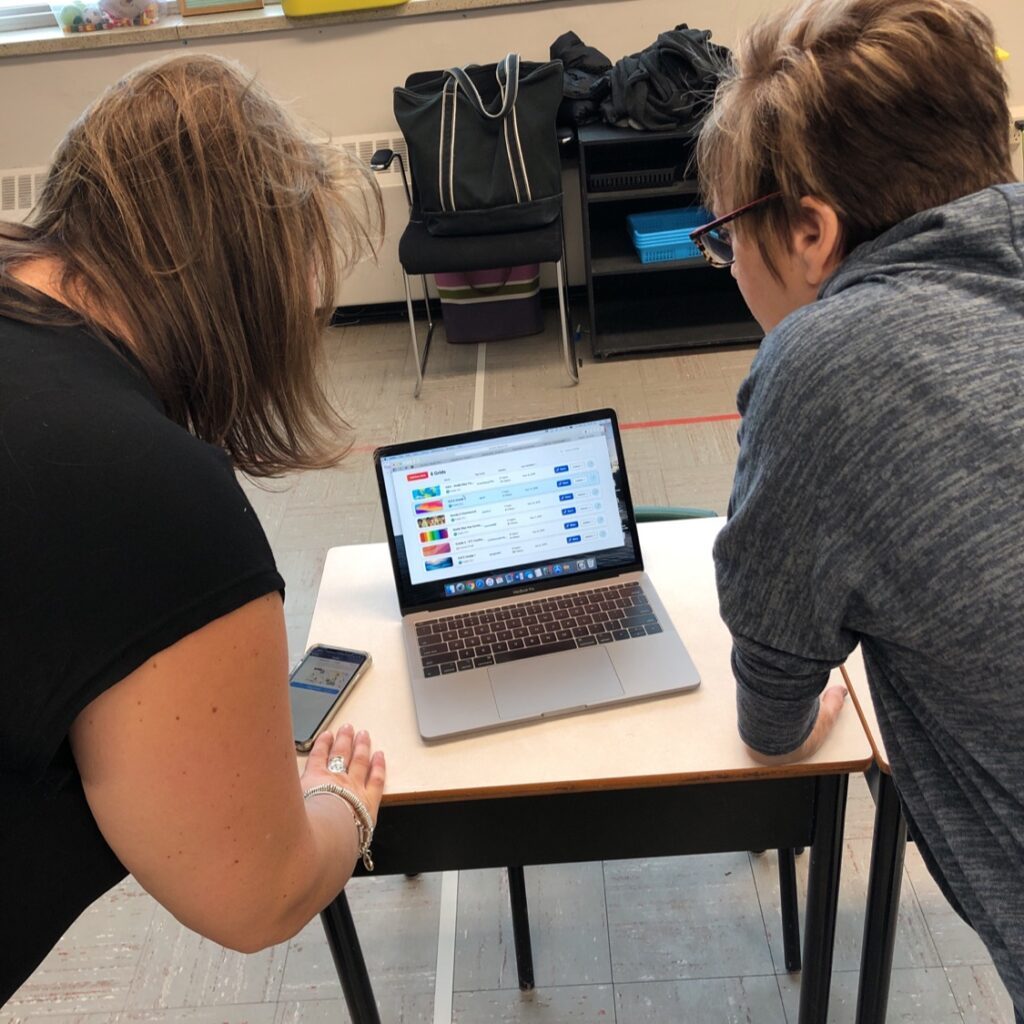
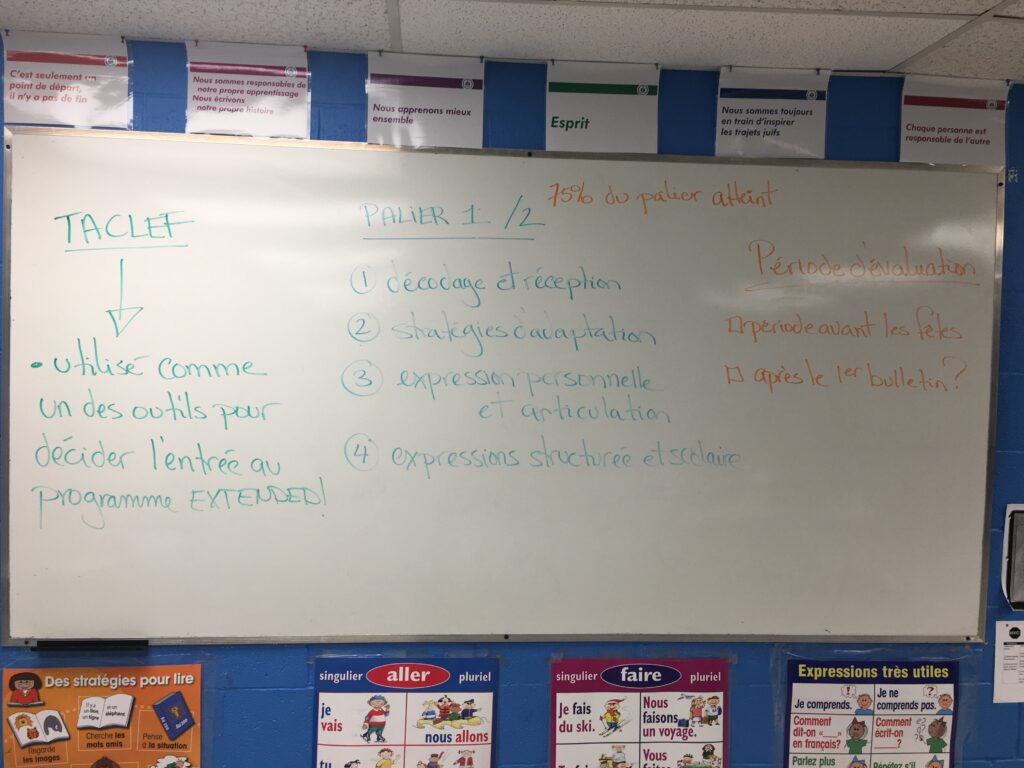
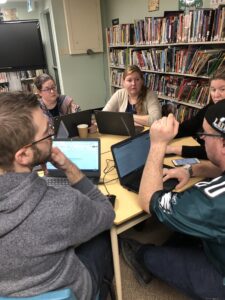 As part of implementing our new
As part of implementing our new 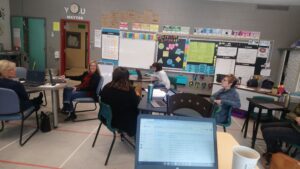 Our Language Arts Faculty looked at
Our Language Arts Faculty looked at 

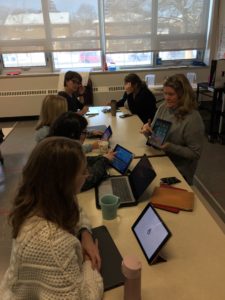 In this session, they are learning about how to use the “
In this session, they are learning about how to use the “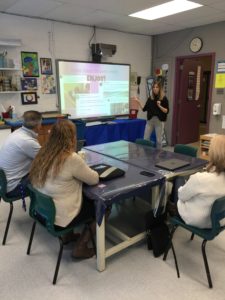 In this session, teachers are being wowed by what they can do with
In this session, teachers are being wowed by what they can do with 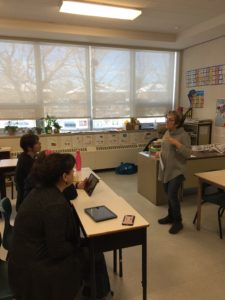 Do you know how amazing it is to watch a teacher who was nervous and reluctant to try a tool wind up teaching other teachers about that tool? I do! Because I am watching it happen in real time…iMovie isn’t so much the chiddush here, but for teachers to better understand how using video as a tool for documentation of/as/for learning is so critical for developing the artifacts we need to better understand their growth and to better explain that growth for parents. One issue that has come up is how great video is for helping students for whom writing is a challenge be able to better express all that they are capable of. [Side note: Watching the cohort begin to use similar language from the work they are doing with Silvia shows you that the learning is beginning to stick. It was the same from our last
Do you know how amazing it is to watch a teacher who was nervous and reluctant to try a tool wind up teaching other teachers about that tool? I do! Because I am watching it happen in real time…iMovie isn’t so much the chiddush here, but for teachers to better understand how using video as a tool for documentation of/as/for learning is so critical for developing the artifacts we need to better understand their growth and to better explain that growth for parents. One issue that has come up is how great video is for helping students for whom writing is a challenge be able to better express all that they are capable of. [Side note: Watching the cohort begin to use similar language from the work they are doing with Silvia shows you that the learning is beginning to stick. It was the same from our last 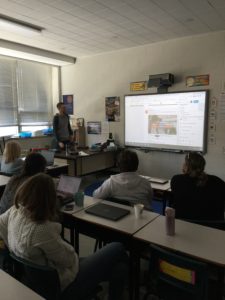 What’s the best way to do PD in 2018? Get on
What’s the best way to do PD in 2018? Get on 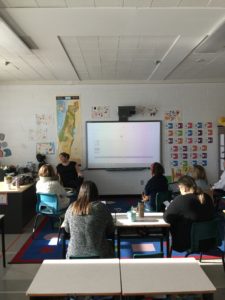 Skype
Skype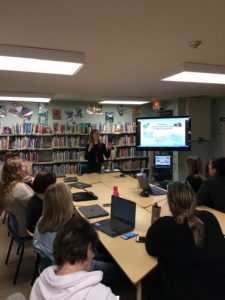 This is probably the most traditional and formal of our sessions today. Our new Director of Special Needs Sharon Reichstein is leading a session on how by beginning with relationships we can better meet the diverse needs of all our students. As a school committed to being as inclusive as our resources allow for, and a school committed to moving towards a personalized learning approach for all its students, using one (personalization) to help achieve the other (inclusion) is both natural and super complicated. Or rather, it might make sense philosophically or in the abstract, but the magic or the artistry is in what happens at 9:15 AM on a Tuesday in a French class with a specific group of children.
This is probably the most traditional and formal of our sessions today. Our new Director of Special Needs Sharon Reichstein is leading a session on how by beginning with relationships we can better meet the diverse needs of all our students. As a school committed to being as inclusive as our resources allow for, and a school committed to moving towards a personalized learning approach for all its students, using one (personalization) to help achieve the other (inclusion) is both natural and super complicated. Or rather, it might make sense philosophically or in the abstract, but the magic or the artistry is in what happens at 9:15 AM on a Tuesday in a French class with a specific group of children.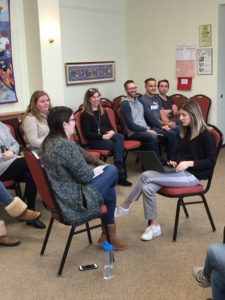 For our last session this afternoon, we went back to reconnect dots with the “Prototype Protocol” our
For our last session this afternoon, we went back to reconnect dots with the “Prototype Protocol” our